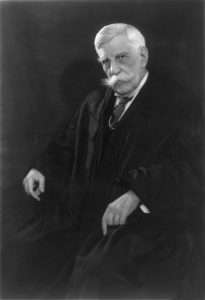Many viewed the space race of the 1950s and ’60s as a battle between American free enterprise and Soviet communism. But the space program wasn’t exactly a free market endeavor.
The original purpose of the National Aeronautics and Space Administration (NASA) was simply to help extend the development of aviation technology into space—a federal intrusion into the economy, but not a huge one. But with the advent of the Apollo program in 1961, the agency expanded into a massive state enterprise with no room for markets. Because the space race was viewed as an urgent battle in a potentially existential war, cost was no object; the saying around the agency was “waste anything but time.” Because there was a mandate to get to the moon quickly, NASA did it in the most expensive possible way.
This unfortunately created the perception that it had been done in the only possible way. Spaceflight, according to the conventional wisdom, simply had to be accepted as an intrinsically exorbitant endeavor, something only the government of a superpower could do.
With the space shuttle, this mentality continued. NASA would develop and operate a single type of launch system, and it would use it to run a government monopoly responsible for getting all American payloads into space. It became almost impossible to raise funds for development of private rockets until the Challenger disaster in 1986 ended the use of the shuttle for commercial payloads. Fortunately, the Air Force had fought to preserve its own capabilities to get its satellites into space, so once it was no longer forced to use the shuttle for military missions it could continue with the Delta, Atlas, and Titan rockets that it had been relying on since the early ’60s.
Even with the advent of commercial launch vehicles in the early 21st century, even with the 2011 retirement of the shuttle, Congress resisted the idea of private enterprise in space. Once Mike Griffin took over NASA in 2005, George W. Bush’s 2004 Vision for Space Exploration quickly devolved from a focus on commercial launch providers to the subsequently canceled Constellation Program, with a focus on new and expensive government rockets that use shuttle components, owned and operated by the space agency. This happened because he knew that Congress would find anything else unacceptable.
Sure enough, when the Obama administration canceled that program, which was vastly over budget and falling behind schedule, space committees in both houses of Congress insisted that it be restored in the form of the Space Launch System and the Orion crew capsule. This was done on a bipartisan basis, because any fealty the Republicans had to private enterprise was vastly exceeded by their desire for NASA pork. Some, such as Sen. Richard Shelby (R–Ala.), derided the low-cost launch company SpaceX as “hobbyists in a garage.” The spectacle prompted one analyst, Polispace founder James Muncy, to declare that “Democrats don’t believe that capitalism works within the atmosphere, and Republicans don’t seem to believe that it works above it.”
Despite all this, we are now on the verge of getting affordable private access to orbit for large masses of payload and people, regardless of how much money Congress insists on wasting on NASA rockets. After years of delay, both Virgin Galactic and Blue Origin are expected to finally start offering suborbital flights to paying passengers in 2020. More important, both Boeing and SpaceX will be delivering crews to the International Space Station in the coming months, finally ending America’s dependence on Vladimir Putin’s Russia for space station access, which began when the shuttle was retired eight years ago.
Most important of all, two versions of an all-new fully reusable spaceship are being assembled by SpaceX in Texas and Florida; their designs will eventually converge into a single one combining the best features of each. On September 28 at the Texas site, the company’s founder, Elon Musk, described a vehicle almost 400 feet tall that would deliver 100 people to various destinations in space, with the initial capability of achieving orbit within six months, at very low marginal cost.
The work is moving at a pace unseen since the 1960s, and it could result in a true spaceflight revolution, driving the cost of orbital access down to a few tens of dollars per kilogram of payload, rather than the thousands per kilogram it’s been since the dawn of the Space Age. That would open vast new off-planet opportunities for humanity.
It will also bring to the fore a lot of ideological issues that up to now were just theoretical. Opening a frontier is hard. It’s even harder when you’re a socialist.
Most American schoolchildren are taught about the first Thanksgiving, when the Pilgrims, with the help of the indigenous people, celebrated their first successful harvest. The part of the story that often goes untold is what happened before that success—the initial failure that led to the loss of so many pioneers in the first years of the colony. It was not a result of the new environment, so different from that of the long-settled England from which the immigrants had come. It was a failure of socialism.
When the Plymouth Company adopted the settlement’s initial economic rules, it stated that “all profits & benefits that are got by trade, traffic, trucking, working, fishing, or any other means” were to be placed in the common stock of the colony, and that “all such persons as are of this colony, are to have their meat, drink, apparel, and all provisions out of the common stock.” In other words, to use a phrase from a subsequent century: From each according to his ability, to each according to his needs.
About half the settlement died of starvation in the first winter. It was only after the colony changed its rules to allow people to keep the product of their own efforts, for their consumption or for sale, that they finally had the first bountiful harvest. This wasn’t a unique event; many of the early English settlements, including Jamestown a few years earlier, had to learn the lesson the hard way.
What are the lessons of this experience for our next frontier, the harshest one to date? Some view settlements in space as a new venue for liberty and social experimentation. But others, including the famously libertarian science fiction author Robert Heinlein, have argued that this time, the environment really is different in important ways: that the lack of gravity, of natural atmosphere, and of easily available water and food—not to mention a radiation environment for which we are not adapted—will introduce dangers that demand collective controls. Space colonists will be critically dependent on new technologies, just one mistake or failure or act of sabotage away from disaster for an entire settlement. It would be too dangerous, we’re told, to permit the kinds of freedoms that people could have had on the American western frontier. The resources needed to sustain space settlements, these critics say, will require collective, not individual efforts.
But as the technologies for living in space continue to develop, they will in fact offer more opportunities for independent living and new forms of social experimentation, including more libertarian lifestyles. For instance, use of extraterrestrial materials, such as lunar regolith (or moon dirt, for the layman), will allow construction of larger and much more robust structures to protect against vacuum breaches and radiation. Additive manufacturing using such resources will enable smaller groups to be independent in terms of equipment crucial to survival. At some point, food may be manufactured, rather than farmed, on a usefully small scale. Ultimately, of course, terraforming of Earth’s moon or Mars (or even other bodies, such as other moons) could provide the same level of safety in volume that we currently have on Earth itself.
Collectivism isn’t needed in outer space, but plenty of people will try to legally compel it there anyway. Princeton space historian Haris Durrani spoke for them when he claimed recently in The Nation that the 1967 Outer Space Treaty (full name: the Treaty on Principles Governing the Activities of States in the Exploration and Use of Outer Space, including the Moon and Other Celestial Bodies) “famously opened by declaring space ‘the province of mankind.'” The treaty, which repeatedly uses the phrase “exploration and use,” in fact says that space activities “are the province of all mankind.” In any case, Durrani goes on to complain that the treaty still does not provide “strong collective property rights” (emphasis added).
The space collectivists, recognizing this “problem,” a decade later came up with the Agreement Governing the Activities of States on the Moon and Other Celestial Bodies, a.k.a. the Moon Agreement, which postulates a “regime” that ensures the solar system’s resources are used in an “equitable” way. It also outlaws private property on extraterrestrial worlds—a violation of Article 17 of the Universal Declaration of Human Rights. For these reasons, among others, the U.S. government has refused to recognize the Moon Agreement as one of the U.N. space treaties. The current administration has repeatedly stated that space is not in fact a commons, and many (including me) have argued that the Moon Agreement’s language is fundamentally incompatible with the wording of the Outer Space Treaty and that no one should be a party to both treaties, though all who have acceded to the Moon Agreement are.
The United States became wealthy not through collectivism but through free markets, including secure contract and property rights under traditional English common law. Some have argued that the combination of Article II of the Outer Space Treaty, which forbids claims of national sovereignty, and Article VI, which requires “continuing supervision” of persons by the states that are parties to the treaty, make it legally impossible to establish those rights in space. But without them, it is extremely unlikely that space will be developed, or that the solar system’s rich resources will be harnessed to improve life on Earth and create abundant new life on other worlds.
Some will consider this a feature, not a bug. There are people both within and outside the space community who see space as, at best, a domain only for pure science—and there are people who view humanity as a curse on the planet that should not be allowed to spread beyond it.
Fortunately, there’s a strong case that this interpretation of Articles II and VI is mistaken, and that in fact property rights, whether for homesteading or for harvesting resources, can be allowed under the Outer Space Treaty. Multilateral agreements with like-minded nations could obviate the notion that doing so would be a claim of “national” sovereignty. Several figures in the space community, including me, are now working on a project to develop such agreements, with the U.S. State Department and National Space Council on board.
Space is too important to be left to government monopolies, and while space settlements shouldn’t require English common law, they must be allowed to embrace it. Socialism, like other ideologies, will be permitted off planet. But socialist space colonies will doubtless languish, as they do on Earth. It is those societies that allow individual liberty and free enterprise that will flourish, filling the solar system, and perhaps eventually the galaxy, with life, consciousness, laughter, and love.

from Latest – Reason.com https://ift.tt/35OwgMq
via IFTTT

